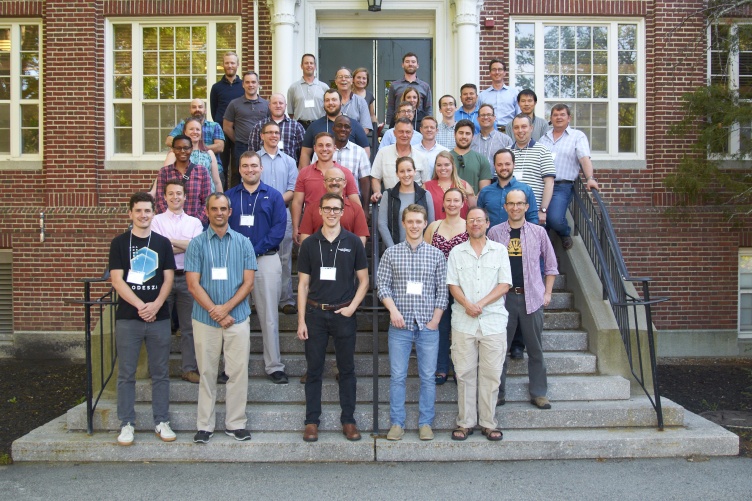
A new grant will enable students and professionals to access more underwater acoustics training courses in the future.
Students and professionals who want to expand their underwater acoustics knowledge-base will have even more options available through UNH in the coming years. The UNH Center for Acoustics Research and Education (CARE) has received a $750,000 STEM grant from the U.S. Office of Naval Research to build a training program that will help develop and sustain an ocean acoustics workforce composed of military and civilian applications related to security, remote sensing, conservation and exploration.
Through a combination of traditional classes, certificates and professional development courses, CARE faculty will develop an improved educational infrastructure to ensure the underwater acoustics workforce is adequately trained in new research and technology advancements. The grant also will enable the development of distance education capabilities to better serve all audiences.
“Education in underwater acoustics, a national naval responsibility, is critical at all levels to meet current and future workforce needs,” says Jennifer Miksis-Olds, director for CARE and the PI on the grant. “This grant money will support additional new courses in the field of ocean acoustics, support the implementation of a new graduate certificate in acoustics and more strongly connect us with our Navy partners through internships supported through Educational Partnership Agreements with Portsmouth Naval Shipyard and the Naval Undersea Warfare Centers in Newport, Rhode Island, and Keyport, Washington.”
Currently, CARE’s educational offerings include two week-long underwater acoustics short courses: the BioAcoustics Summer School for graduate students, and the Marine Acoustics, Sonar Systems and Signal Processing Short Course, which is geared towards scientists and engineers.
Miksis-Olds anticipates the new educational offerings also will benefit students interested in mechanical and ocean engineering, ocean mapping, oceanography, and marine robotics — all of which impact naval workforce needs.
The Institute for the Study of Earth, Oceans, and Space (EOS) is UNH's largest research enterprise, comprising six center with a focus on interdisciplinary, high-impact research on Earth and climate systems, space science, the marine environment, seafloor mapping, and environmental acoustics. With more than $60 million in external funding secured annually, EOS fosters an intellectual and scientific environment that advances visionary scholarship and leadership in world-class research and graduate education.
-
Written By:
Rebecca Irelan | Institute for the Study of Earth, Oceans, and Space | rebecca.irelan@unh.edu | 603-862-0990
















































